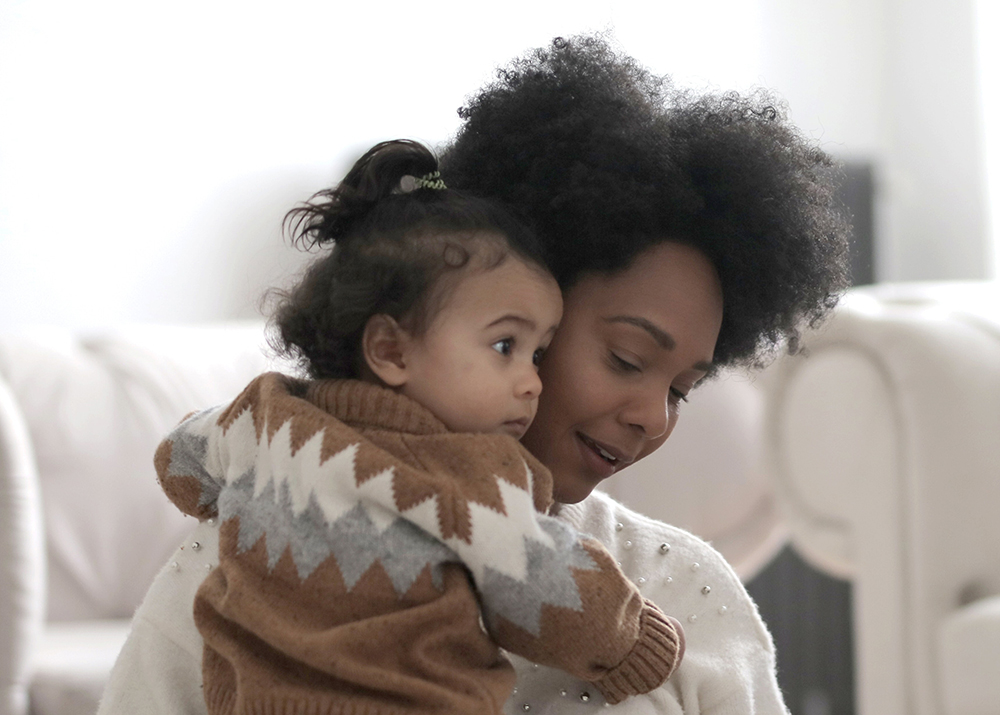It is no secret that the United States has the worst maternal mortality rates in the developed world, especially among Black women.
“Every two minutes, a woman dies from complications related to pregnancy and childbirth,” Dr. Mary-Ann Etiebet, Executive Director of Merck for Mothers, told Good Day BIO.
“This is a global issue, with certain countries like India and Nigeria facing the greatest burden,” continued Dr. Etiebet. “In the United States in particular, we’ve actually seen the maternal mortality rate increase over the last decade and have the greatest impact on certain populations: a Black woman is three to four times more likely to die than a white woman.”
“I know my body,” Serena Williams famously wrote in Elle about her own near-death maternity. “Giving birth to my baby, it turned out, was a test for how loud and how often I would have to call out before I was finally heard.” Though hospital staff and doctors belittled her request, Williams insisted on a CAT scan of her legs when they went numb after her pregnancy. She required immediate emergency surgery to save her life.
Williams’ story is unfortunately not a rarity.
“Maternal mortality is a significant and foreboding public health crisis in the United States,” said Rebecca Cypher, MSN, PNNP, 2020 President of the Association of Women’s Health, Obstetric and Neonatal Nurses (AWHONN). “Nationwide, 700 women die each year due to pregnancy-related complications, many being preventable.” The CDC’s most recent data on maternal deaths shows the rates have not significantly improved in several years.
And these disturbing figures belie an even deeper issue around women’s healthcare in the U.S. Many studies have found “women report more severe levels of pain, more frequent incidences of pain, and pain of longer duration than men, but are nonetheless treated for pain less aggressively.” The Guardian recently reported women are “32% more likely to die after operation by [a] male surgeon,” a 15% greater chance of a “bad outcome” than if the surgery was performed by a woman.
This problem is not unique to the U.S. “Worldwide, more than 3 in 10 women and babies do not currently receive postnatal care in the first days after birth – the period when most maternal and infant deaths occur,” said the World Health Organization (WHO) in March. “Meanwhile the physical and emotional consequences of childbirth – from injuries to recurring pain and trauma – can be debilitating if unmanaged, but are often highly treatable when the right care is given at the right time.”
National Women’s Health Week, which begins annually on Mother’s Day, is a good time to draw attention to the maternal mortality crisis in the United States.
How patient advocacy groups are addressing maternal health
“There’s a long history in this country of women in general, Black women in particular, not having autonomy over their own bodies,” Teonna Woolford, Co-Founder and CEO of Sickle Cell Reproductive Education Directive (SC RED), previously told BIO. SC RED advocates for “high quality sexual and reproductive health care for individuals living with all types of sickle cell disease.”
Sickle cell disease disproportionately impacts Black and Hispanic communities in the U.S., occurring in 1 out of 365 African-American births and in 1 out of 16,300 Hispanic births. A 2021 study in Jamaica found women with sickle cell disease have a mortality ratio “7–11 times higher than women without these disorders.”
SC RED, and other patient advocacy groups, are driving education, awareness, and change, often in concert with health and pharmaceutical companies.
The Black Mamas Matter Alliance (BMMA) is “a Black women-led cross-sectoral alliance that centers Black mamas and birthing people to advocate, drive research, build power, and shift culture for Black maternal health, rights, and justice.” In 2013, Center for Reproductive Rights and SisterSong Women of Color Reproductive Justice Collective joined forces to educate, advocate, connect, and empower Black mothers.
There is also the Black Women’s Health Imperative, which, among other initiatives, has partnered “with AWHONN to lay the groundwork necessary to develop a patient-centered, values-based implicit bias curriculum that incorporates the lived experiences of Black women during their pregnancy, birth and postpartum care.”
The Hear Her initiative, launched in August 2020 by the CDC, is “a national communication campaign that brings attention to maternal mortality and provides support to pregnant and postpartum women to speak up when something does not feel right.” Since its inception, “nearly 400 million people visited the Hear Her website and had access to resources that centered the experiences of those most impacted and helped people who are pregnant have a better opportunity to access high-quality maternal health care.”
And Merck for Mothers continues to maintain steam, reaching over 18.2 million women through programs promoting safe, high-quality, respectful care. The program has also invested in over 120 initiatives both internationally and domestically including Hear Her in the US, The Manyata Program in India, and Nivi In Kenya, among many, many more.
“Since 2011, we’ve helped more than 10 million women have healthier pregnancies and safer deliveries,” Merck’s Dr. Etibet told Good Day BIO. “Since we first started, our mission has always been to help create a world where no woman has to die giving life—and we believe the efforts underway are making a difference today, as well as for generations to come.




